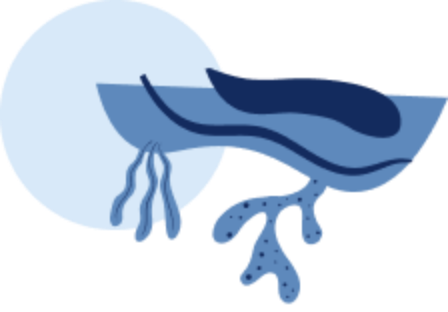


The Essential MSP Guide to SEO



As a managed service provider (MSP), growing your business requires you to continuously bring in new clients — or upsell your existing clients on more expensive products and services.
Search engine optimization (SEO) is a digital marketing strategy that can help you attract new organic leads with the power of good content and web design. All you need to do is understand how search engines rank pages for quality.
Getting Started: Key SEO Terms and Concepts
Before we dive into how you can take action, let's briefly review some key SEO vocabulary:
- Keywords: Commonly searched words or phrases you want your website to rank for.
- Crawling: How search engine bots, or “crawlers,” explore websites.
- Indexing: How crawlers store and organize the web content they find.
- Query: The specific word or phrase you enter into the search bar.
- Search engine results page (SERP): The page listing all the results of your search.
- SERP features: Search results that appear in a format other than a link to the page. Examples include image packs, ads, videos, People Also Ask boxes and Featured Snippets.
- Domain authority (DA): A score from 0 to 100 that indicates how likely your website is to rank for a specific keyword. Generally, websites with a higher DA are more likely to rank.
- Webmaster guidelines: SEO guidelines published by search engines to help site owners create valuable, high-quality content that ranks well.
- Black hat: SEO practices that violate Google's page quality guidelines. Pages using black hat practices are more likely to be pushed down in SERPs.
- White hat: SEO practices that follow Google's page quality guidelines. Pages using white hat practices are more likely to rank.
On-Page SEO for MSPs
On-page SEO involves optimizing your website content to improve the user experience (UX) and make your page rank higher in Google.
Some of the essential components of good on-page SEO include:
- Keyword insertion: Incorporating your target keyword naturally into the page copy several times improves the chances that your page will rank in searches containing that term.
- Quality content: All site content should be well-written, accurate, clear and relevant to rank well.
- Meta description: While meta descriptions do not have as much SEO value as other elements, it's still useful to write a short summary of the post that contains relevant keywords and entices users to click.
- Image optimization: Any images should load quickly and fit into the page they're placed on. Writing an alternate tag that contains the target keyword is also a good idea to signal to crawlers that they should index your page.
Once you know which pages you want to rank, it's time to begin keyword research.
Keyword Research
Keyword research helps you pinpoint which terms your target audience is looking for, enabling you to:
- Identify new content opportunities.
- Find keywords related to your offerings.
- Better understand your online audience.
- Discover market trends.
For example, if you have a page dedicated to your help desk support services, and your MSP is based in Chicago, you might target the phrase “tech support outsourcing Chicago” or any variation of it.
Content Strategy Tips and Tricks
The best advice we can give is to diversify your content — sticking to the same type of content all the time can cause users to become disengaged. You can use your keyword research findings to come up with new, quality topics for content.

Tailor each piece of content to where the user is in the sales funnel:
- Top-of-funnel (TOFU): The user is still building awareness of the problem they're trying to solve, so more general educational content like informational videos, blog posts and infographics help you gain their trust and establish your website as a credible source of information.
- Middle-of-funnel (MOFU): Users who are already aware of their pain points are evaluating solutions, so content like white papers and case studies from satisfied clients helps introduce them to your brand.
- Bottom-of-funnel (BOFU): When the user is ready to make a decision, provide branded content that leads them directly to the appropriate course of action. Contact pages, service guides, brochures, demos and comparison tools help them convert and confirm that they are choosing the right MSP.
Off-Page SEO for MSPs
Also known as link building, off-page SEO involves getting reliable and well-known websites to link back to your site. The more valuable backlinks you have, the higher your domain authority — and the more likely you are to rank.
Here are some quick tips for effective link building:
- Network with reliable publishers: Building relationships with other leading voices in your industry can help you establish your MSP as a good source of information, which can earn you links.
- Contribute to other blogs: Guest posting on other blogs in your industry or sector earns you a link back to your site and exposes your content to a broader audience.
- Submit your blog to web directories: Listing your blog on a public directory helps people looking for informational content find your site and gives you a linking opportunity.
- Post contributions to your blog: Featuring well-known guest writers on your site can both boost your domain authority and potentially earn you an external link.
- Keep content evergreen: To make your content as linkable as possible, avoid breaking news and short-lived trends. Instead, focus on topics that will always be valuable to readers, like how-to guides and basic explainer articles.
Technical SEO for MSPs
Technical SEO includes all the backend operations involved with keeping your site running well for both human users and search engine crawlers. Providing a good UX ensures crawlers can easily navigate to new pages on your site for indexing, which can lead to better SERP rankings.
Some of the most important areas to address in technical SEO are:
- Streamlining site navigation.
- Placing internal links to other pages on your site.
- Adding properly labeled HTML tags.
- Improving loading speed.
- Ensuring mobile compatibility.
- Removing or reworking duplicate content.
The Importance of Mobile Compatibility
Conventional web design doesn't work well with mobile devices — and if your site doesn't work well on a potential client's phone, they're likely to exit the page, which hurts your SERP rankings.
Instead of relying solely on traffic from desktops and laptops, make your site mobile-friendly by:
- Creating a mobile version: Many organizations create two versions of their website to add functionality for both mobile and computer users, who can switch between versions through your site menu.
- Embracing mobile-first design: You can also prioritize mobile devices in your website design, creating one version of your site that is fully functional for both computer and mobile users.
You can use tools like the Lighthouse feature in Chrome DevTools to make sure your website will run well on mobile devices.
The Importance of SEO Analytics and Metrics
Once you know what your goals are for this SEO campaign, you need to monitor your metrics to ensure you're making progress.
Some popular SEO analytics tools include:
- Ahrefs
- Semrush
- MOZ
- WhatConverts
- Agency Analytics
- Google Analytics
While some of these tools are free to use, others charge a monthly or yearly subscription. Doing your research into each option is important for ensuring you choose the right product.
Level Up Your Digital Marketing Game Without Fear
When you're starting a new marketing campaign for your MSP, the last thing you want is to have to put it on pause due to a cyberattack. That's where effective employee training comes into play.
Phin Security's comprehensive cybersecurity training platform educates your employees on how to recognize common cyber crimes so you can launch your SEO campaign with confidence. Request your 30-day free trial to get started.







Leave a comment: